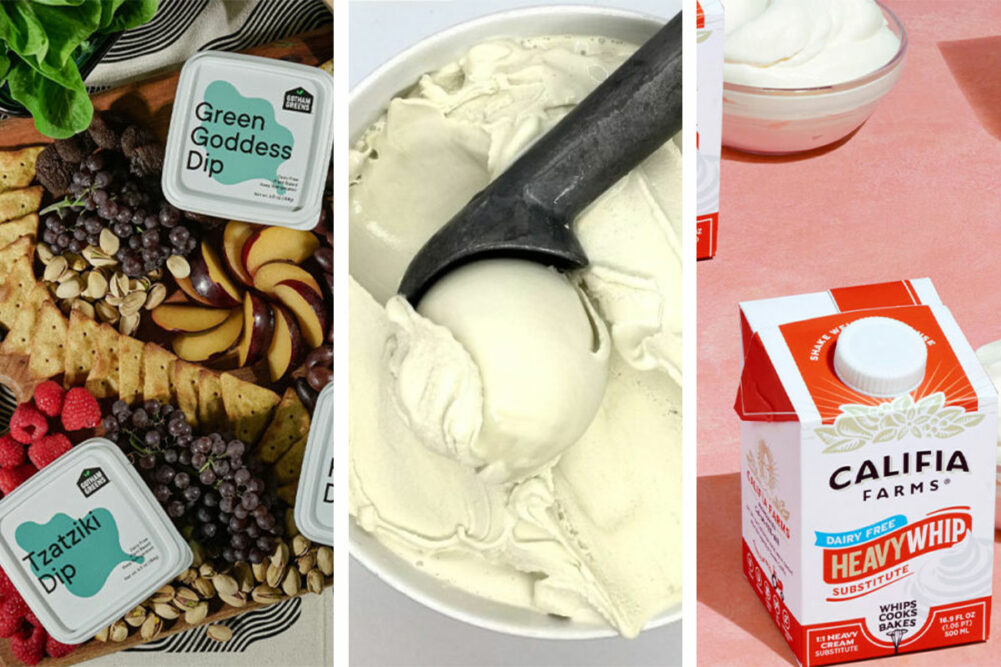KANSAS CITY — New plant-based product formulations continue to populate new product introductions, despite a slight decline in market penetration.
In the second quarter of 2022, the Brightfield Group’s consumer insights platform found the portion of shoppers purchasing plant-based creamers fell 25% in the second quarter of 2022, while those purchasing plant-based sausage and fish alternatives fell 17%. Penetration also declined for dairy-free yogurt (down 9%), dairy-free cheese (down 8%), burger alternatives (down 7%), chicken alternatives (down 6%) and dairy-free ice cream (down 3%). Only plant-based frozen meals and plant-based bacon saw modest gains, up 5% and 1%, respectively.
“People report using plant-based because they believe it is better for their health and better for the planet, but we’ve really seen those sentiments contract among many consumer segments,” said Bethany Gomez, managing director at Brightfield, in a September interview.
Despite second-quarter results, 2023 trend predictions offer a positive outlook in the plant-based category. Market researcher Mintel identified four key trends for the coming year, including a consumer desire to stay sharp.
“Focus and productivity are the next mental and emotional well-being functionalities that consumers will be seeking,” said Rebecca Vella, director of insights at Mintel Food & Drink. “Consumers will look for food and drink that influence cognitive capacity, manage stress levels and optimize brain function. Expect to see brands promoting the brain boosts available from familiar energizing ingredients, such as plant-based ingredients like fruits, vegetables and legumes and caffeine (in moderation). But research will be needed to prove to consumers that the range of natural and functional ingredients from B vitamins to nootropics deliver on their cognitive health promises.”
Sustainable food technology company Sophie's BioNutrients collaborated with the Danish Technological Institute to make a chlorella-based, vegan-friendly ice cream.
The plant-based frozen dessert was produced using a dairy-free chlorella protein concentrate developed by Sophie’s BioNutrients, which grows microalgae to produce protein.
“Microalgae is one of the most nutrient-rich and versatile resources on the planet,” said Eugene Wang, cofounder and chief executive officer of Sophie’s BioNutrients. “Today we have shown another facet of the unlimited possibilities this superfood can offer — a dairy and lactose-free alternative to ice cream that, thanks to microalgae, offers a higher nutrition content than most available dairy-free alternatives.”
Larger companies are adding plant-based versions of their popular products, including the Bel Group and Kraft Heinz Co.
The Bel Group added plant-based varieties of its Laughing Cow brand. The Laughing Cow Plant-Based cheeses are certified vegan and were developed to duplicate the “spreadability” associated with the brand’s original dairy-based product.
After a two-year development process, Kraft Heinz’s Philadelphia Cream Cheese brand launched its first ever plant-based spread, aiming to reach the 52% of consumers wanting to add more plant-based foods to their regular diet, according to the company.





